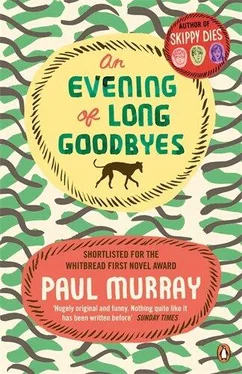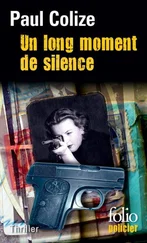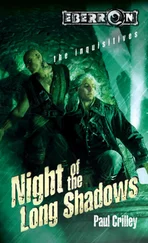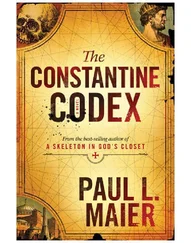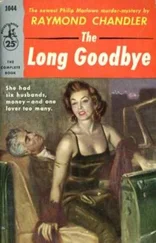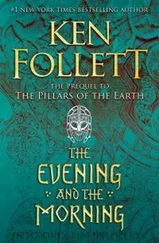If you looked at her life from start to finish, it seemed clear that her marriage to Oleg Cassini was the event that set loose all the other catastrophes that befell her — the initial transgression that woke the Furies until then lying dormant at the edges of her life. Marrying him, in fact, was about the only rebellious thing she ever did. She had been reared to be a nice girl, and she had always done exactly what she was told — living frugally with her mother in Hollywood, sending her pay cheques back to the company her father had set up, catching hell from him for any extravagance: and then Cassini came along.
Oleg Cassini was Russian, the son of a Countess who had fled to America after the defeat of the White Army; he was also a designer and a playboy and had not been to Yale, and as such could not have been further away from what Gene’s parents thought of as a suitable match if they had sat down and planned it. They would not countenance the romance. Gene’s father said that if she married Cassini he would have her declared mentally instable. The studios concurred: and whatever about her parents, in those days no one defied the studios. They had made you, and they could destroy you just as easily. But Gene was in love.
She thought that once they were married, and there was no longer anything anyone could do about it, things might die down; so, travelling in disguise, she and Cassini eloped to Las Vegas. On the night of their wedding Gene came back to Los Angeles, having agreed with Oleg, in the interests of diplomacy, to spend it apart: only to find that her mother had already fired the servants and flown home to New York City. And worse was to come.
Parents and studio now joined forces. Paramount fired Cassini and Gene’s studio, Fox, refused to take him on. Her parents, meanwhile, complained to the press that Cassini had taken advantage of their daughter, and tried to have the marriage annulled. Suddenly the newlyweds found themselves blacklisted by Hollywood society, deserted by their friends. Cassini was still out of work; Gene, on the other hand, was working constantly, and they saw each other increasingly rarely. As the pressure began to tell, her father and mother started calling her up at all hours, trying to persuade her to leave him. In the midst of all this, during the shooting of Heaven Can Wait, Gene discovered she was pregnant; and America entered the Second World War.
After so much personal turmoil, the war must have seemed something of a reprieve. Old differences were set aside; the nation busied itself ‘pitching in’. Gallant Cassini joined the cavalry; Gene, like most of the stars, took part in bond drives to raise money for the war effort. She toured around the country, speaking at factories and outdoor rallies. A week before she went down to Kansas, where Cassini’s division was stationed, she appeared at the Hollywood Canteen to entertain the marines. A few days later she was diagnosed with German measles.
She had kept quiet about her condition — the studio would suspend an actress’s salary if she became pregnant on their time. In 1943, the connection had not yet been made between German measles in early pregnancy and brain damage in very young children. Gene gave birth prematurely in October to a baby girl, weighing two and a half pounds. She named her child Daria.
It was a year later that the newspapers picked up on the story of the rubella epidemic in Australia that had apparently produced a generation of severely retarded infants, and Gene began to admit that her baby might not just be a late developer, but was having serious problems. Specialists were called out at great expense (paid for by Gene’s old flame Howard Hughes, then beginning his own retreat from the world after his disfiguring plane crash). They all said the same thing. The damage had already been done, while the baby was still in the womb, and it could not be undone. The best thing for everyone now would be for the child to be put in an institution.
Gene was tormented by guilt and confusion. Hadn’t she always tried to be good? Hadn’t she always done what people asked? What had she done to bring this catastrophe down on top of her and those she loved? She resisted as long as she could; but she was twenty-four years old and after everything that had happened the pressure was too much. Daria was put in a home, where she would remain for the rest of her life with the mind of a nineteen-month-old infant.
One quiet Sunday years later, at a tennis party in LA, Gene happened to be approached by a fan. This young woman was an ex-marine; she said she had met Gene before, at a show in the Hollywood Canteen during the war. ‘Did you happen to catch German measles that night?’ the woman asked. Gene said that she did, as a matter of fact. The woman laughed and said the whole camp had come down with German measles, but that she had broken quarantine, to sneak out and meet her favourite star.
Anyone else would have screamed, or punched her; but Gene, who had been reared to be nice, merely smiled and turned away.
It seemed to me that after that her films became a kind of refuge for her. Not the work, nor the scripts, but the movies themselves: as the betrayals mounted up, as the birth of their child achieved what the combined forces of parents and studio could not and her marriage to Cassini slowly fell apart, it seemed to me that the movies became places where she could hide herself, where she could disappear. Take, for example, The Ghost and Mrs Muir , in which she plays a widow who falls for the ghost that haunts the cottage she has moved into. The ghost, played by Rex Harrison, first catches her eye in the form of a portrait in the living room — which seems a neat flip of what happens in Laura , where the cop falls in love with the painting of Gene, who has been murdered. People falling for ghosts, people falling for paintings, in more and more of her movies I found this secret tendency elaborated: a tendency for the movies to create spaces for her within them, interstitial spaces of one kind or another — as if, although she couldn’t make the movies hers, she had elicited a secret pact whereby she could escape into them and exist away from life, untouchably, as an image; as if in here, after all, she found her true domain — the illusory, the shadowy, the in-between –
‘Charlie, this is like the fuckin most borin film I’ve ever seen in me life.’
— although much of this was lost on others –
‘Yeah, Charlie, and it’s time for Hollyoaks .’
‘Charlie, can you not just let us watch Hollyoaks and then you can watch the rest of this thing?’
‘Charlie, we know you can hear us so like why aren’t you sayin anything? Charlie?’
‘Blast it — because I know that once Hollyoaks is over you’ll want to watch Streetmate , and then Robot Wars and then that unconscionable Dawson’s Creek …’
‘I don’t watch Dawson’s Creek , Charlie.’
‘Well, you were certainly doing a good impression of it the other night. Confound it, can’t you just sit still for half an hour and then I’ll quite happily —’
‘I’d give her one, wouldn’t you, Frankie? Charlie, would you give her —’
‘Look, you scoundrels,’ rising apoplectically to my feet with the rolled-up television guide as though shooing a pack of mangy street dogs, ‘hang it, can’t you just leave me in peace for a few minutes more and then I swear to you I will return your deuced television !’
‘All right, all right… fuck’s sake …’ The pair of them slunk away to the kitchen, only to strike up from there a few moments later:
‘Hang it, Droyd, I wish to the devil you’d roll up an oul joint there.’
‘Confound it, Frankie, where’s me deuced Rizlas?’
Читать дальше
